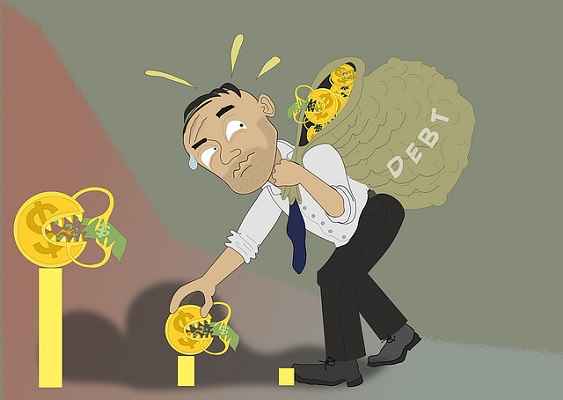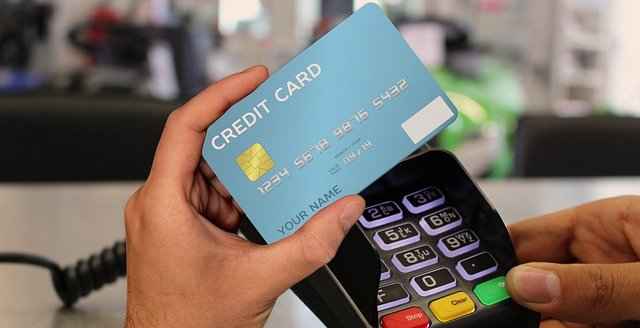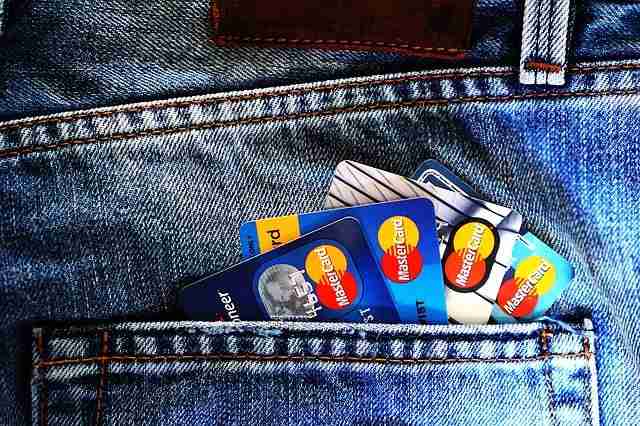“CIBIL score” is a term that we all have listened to. But do we really understand the meaning of the CIBIL score? How is the CIBIL score calculated? We also get confused between CIBIL Score and Credit score…… To answer these questions, WealthDrift has come up with this article that contains everything you need to know about the CIBIL score.
THE MEANING OF THE CIBIL SCORE
CIBIL stands for Credit Information Bureau of India Limited. It is an agency authorized by RBI that maintains the credit activities of the individuals or companies registered with them. The credit activities include all the credit card transactions, loans, repayment history, etc. These details are provided by registered banks and other institutions to the agency. On the basis of this information provided to the agency, it generates a Credit Report and also calculates a CIBIL score. It is a three-digit number that varies between 300 and 900.

CIBIL score is a measure of the reliability of a person in case a loan is given to the person or an institution. A CIBIL score between 700 and 749 is good while more than that is an excellent score. The higher the CIBIL score, the higher the chances of getting a loan because such individuals are more likely to pay instalments on time. An excellent CIBIL score is also advantageous if you want a loan with low-interest rates.
HOW IS THE CIBIL SCORE CALCULATED?
There are four factors that contribute to the CIBIL score –
1. Repayment History
This is one of the biggest factors that play a critical role in deciding your CIBIL score. It contributes to 30-35% of your CIBIL score. If you pay your EMIs and credit card bills on time then it will positively impact your CIBIL score and if you delay the payment or default any EMI then your CIBIL score will decrease. Even a 30-day delay in payment can reduce your CIBIL score by 100 points.
2. Type of credit taken and duration of credit
This is another contributor to your CIBIL score. One should have a mixed type of credit to their name i.e. secured loan (Home or Auto loans) and unsecured loan (credit card loan). This is a sign that the person is experienced in handling all kinds of loans and hence impacts your CIBIL score positively. Type of credit contributes to 10% of your CIBIL score.
If you have a long credit history then it is good for your CIBIL score. It governs 15% of your CIBIL score. It is generally advised to start creating your credit history as early as possible as it helps when you want to take larger loans for home etc.

3. Existing loan and credit use
This is another major factor that impacts your CIBIL score. It decides for 30% of your CIBIL score. It is the extent to which you have utilized your credit limit. Your credit limit is decided on the basis of your income and if you have utilized your credit limit to the full or you hit your credit card limit every month then it is a bad sign for the lenders which reflects in your credit report as well in your CIBIL score. It is an indication that you are more likely to turn into a defaulter soon.
4. Multiple credit enquiries
When you apply for a loan the lender studies your CIBIL report which is known as a hard inquiry. The more the number of hard inquiries (especially the unsuccessful ones) in a short time, the worse it is for your CIBIL score. The rejected multiple applications tell that you are barely surviving without the credit and lenders do not find you suitable for giving credit. Do not apply for credit in multiple ways at the same time. Apply for a personal loan only if you are sure that it satisfies all the eligibility criteria at the time of application.
OTHER FACTORS THAT AFFECT THE CIBIL SCORE
1. Outstanding debt – Having an outstanding debt and not clearing it, is detrimental to your CIBIL score. It also gets reflected in your CIBIL report. Clear off your debt no matter how small they are.
2. Paying off only the minimum amount due – When you pay only a part of the principal amount that is due every month then it is considered bad repayment behaviour. It also results in interest compounding over time. It is advised to pay off the whole credit card bill at the end of each billing cycle.

3. Closing credit accounts – If you have had a credit card for a long time then it is advised not to close that credit card account as you will also lose the credit history that you have created over time.
4. New Accounts – Opening new loan accounts or getting multiple credit cards within a short duration of time also impacts your CIBIL score negatively. Because it implies that your debt burden has increased.
DIFFERENCE BETWEEN CIBIL SCORE AND CREDIT SCORE
A Credit Score is a three-digit number that tells about the credit history of a person. The banks before giving any loan to a person check the credit history of the applicant. To keep this data, RBI has authorized 4 credit agencies namely Equifax, TransUnion CIBIL, Experian, and CRIF High Mark. The banks then go to any of these four agencies for the credit history of the applicant. Therefore the credit score and report provided by TransUnion CIBIL are known as the CIBIL Score and CIBIL report respectively. So the only difference between credit score and CIBIL score is that Credit score can be given by any of these 4 agencies but the CIBIL score is given by only TransUnion CIBIL.
Know your CIBIL score by selecting a subscription here.
WHAT DOES YOUR CIBIL SCORE SIGNIFY?
Following are the different ranges of CIBIL score and what that score signifies –
1. 550 or below
The meaning of a CIBIL score in this range is that there is little to no chance that you will get a loan from any bank in India. You will either get a small amount or the rate of interest will be very high. Borrowers will have to opt for a loan against collateral like gold, shares, etc. If you want to improve your score, then it will take a few years of good repayment history.
2. 550 to 649
A CIBIL score in this range is below average. Lenders will not prefer to lend money to any individual with a CIBIL score in this range. It indicates that you have defaulted your EMIs in the past and there are high chances that you might do that in the future as well. To give a loan to such an applicant the lender might ask for a guarantor that can make payment in case the borrower doesn’t.

3. 650 to 699
This is an average CIBIL score range. It indicates that the credit history of the borrower is neither too good nor too bad. The chances of loan applications getting rejected are still quite high in this range of CIBIL scores. You will get the loan at a high interest rate with zero additional benefits.
4. 700 to 750
This is a good CIBIL score range. Most people have their CIBIL score in this range. The chances of getting a loan are fair in this score range. The bank may dig a little deeper into the credit report to give the approval. However, there is still scope for improving your CIBIL score by making timely payments.
5. 750 and above
A CIBIL score in this range is an excellent score. The chances of getting a loan approved are high. The loans to such borrowers are considered risk-free. You will get the loan at comparatively lower interest rates and can get additional benefits as well.
HOW TO IMPROVE A POOR CIBIL SCORE?
These are the most effective methods to apply if you want to improve your CIBIL score –
1. STUDY YOUR RECENT CIBIL REPORT
This should be the first thing you do when you want to improve your CIBIL score. Get your latest CIBIL report and study it. Try to find out the areas where you can improve, why your CIBIL score dropped etc., and set out a target for yourself with the time period to be at least 6 months. Also, you can check for errors if any in your CIBIL report and get that corrected.
2. ON-TIME PAYMENT
Do not postpone any payment, be it your credit card bill or loan EMI. For this, you can also automate your payment so that even if you forget, your payments will be made on time.
3. CLOSE YOUR UNUSED CARDS
If you have multiple credit cards out of which 1-2 cards remain unused then it is advisable to close those credit cards. If you do not want to close then you should use them at least once a month maybe for fuel payment, or small shopping, etc.

4. DEBT TO INCOME RATIO
Maintaining your debt-to-income ratio between 0.2-0.35 is good for your CIBIL score. If your credit card allows you to borrow 1 lakh then it is not necessary to reach your limit every month.
5. AVOID INCREASING YOUR LOAN TENURE
If you increase your loan tenure midway to decrease your EMI then it has a negative effect on your CIBIL score.
6. CREDIT CARDS
If you want to have a credit card then opt for the maximum limit you can get and use not more than 30-35% of that limit.
7. LOANS
Do not apply for loans that too at multiple places if you are not sure that your application will get approved. This shows that the borrower is hungry for credit and is not able to survive without it.
So folks this is all that you need to know CIBIL score and its meaning. Factors affecting CIBIL score, ways to improve CIBIL score, etc. remain the CIBIL the same as that for Credit score. If you liked our article then feel free to share it with your peers. Let us know your thoughts through the comment section below. You can connect with us directly through Contact Us Page.



